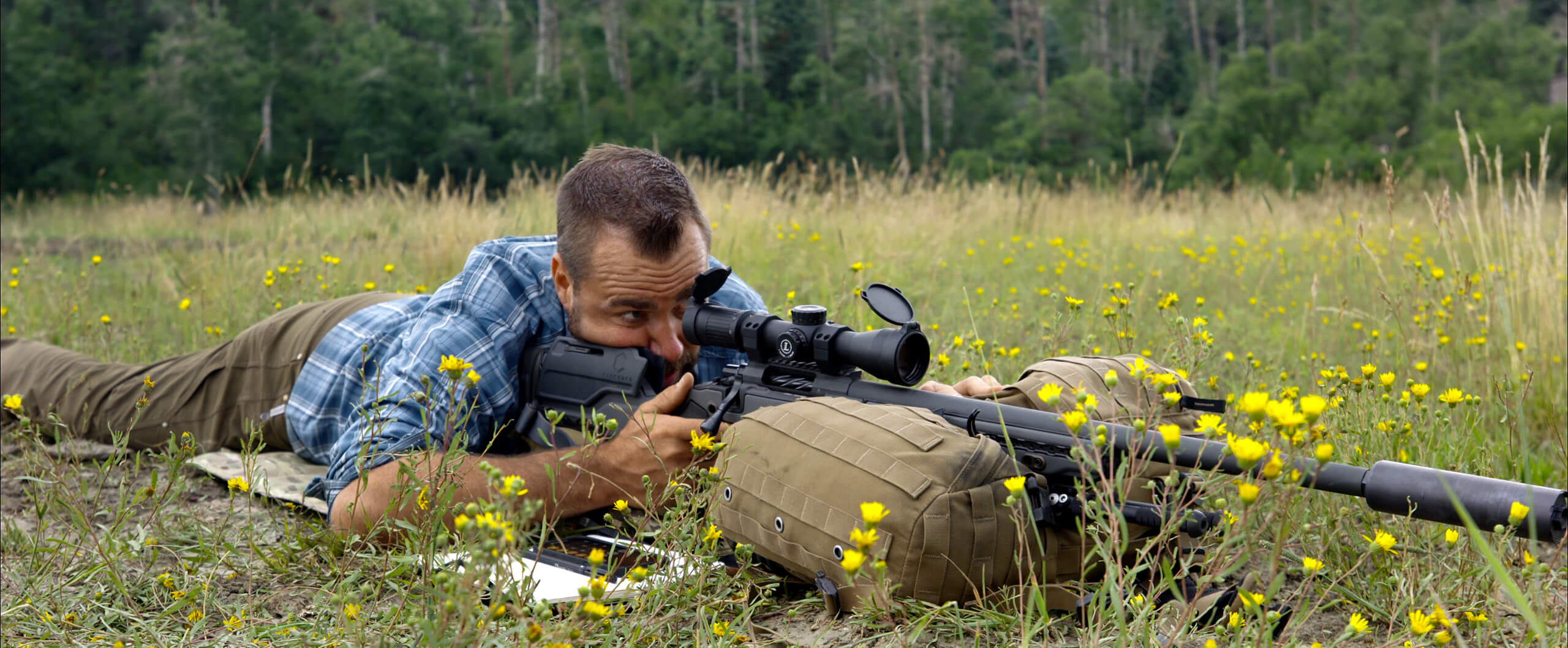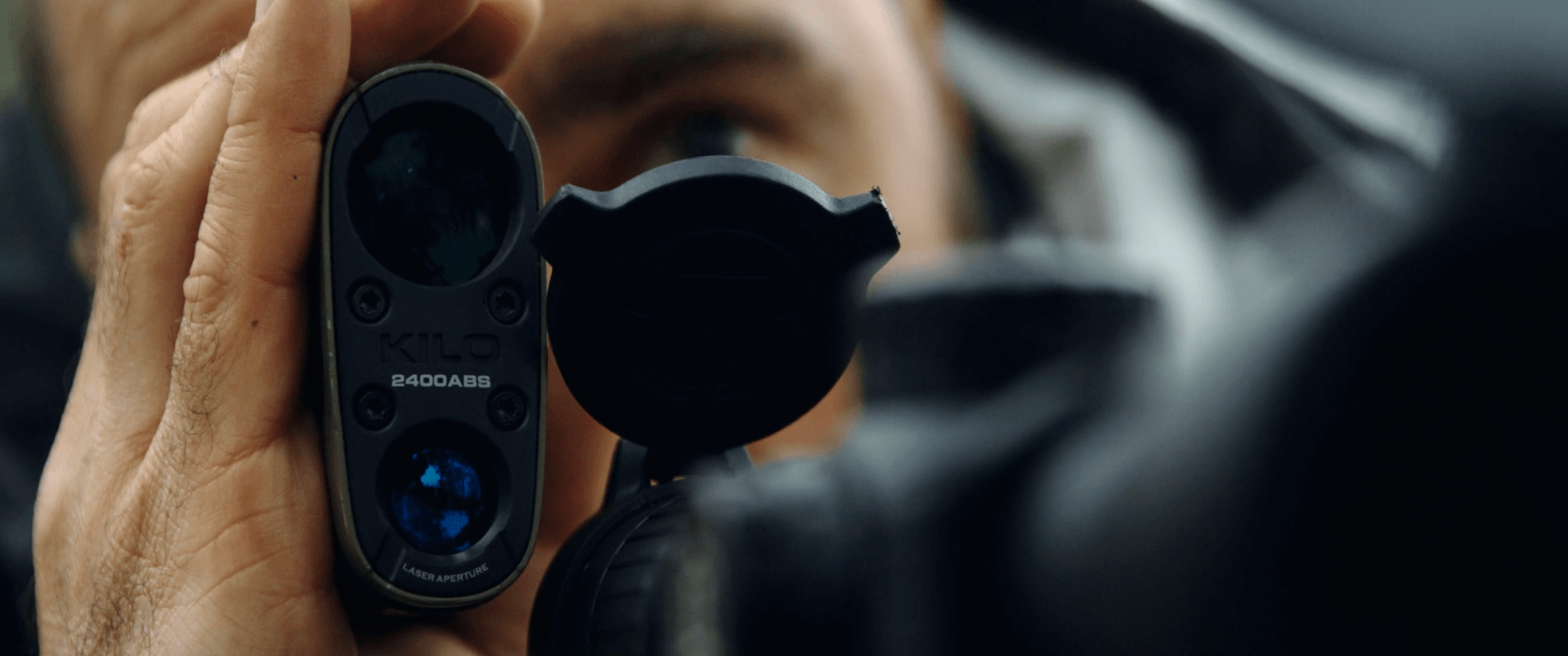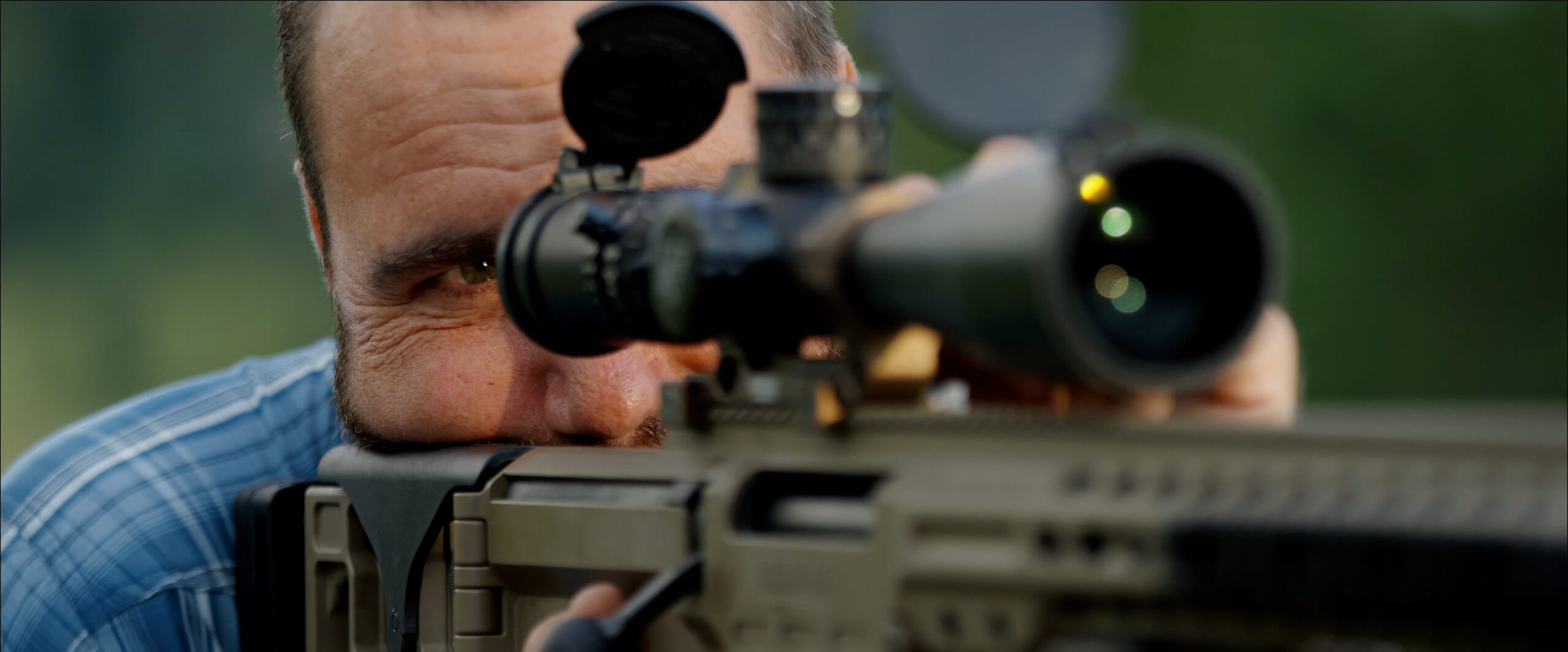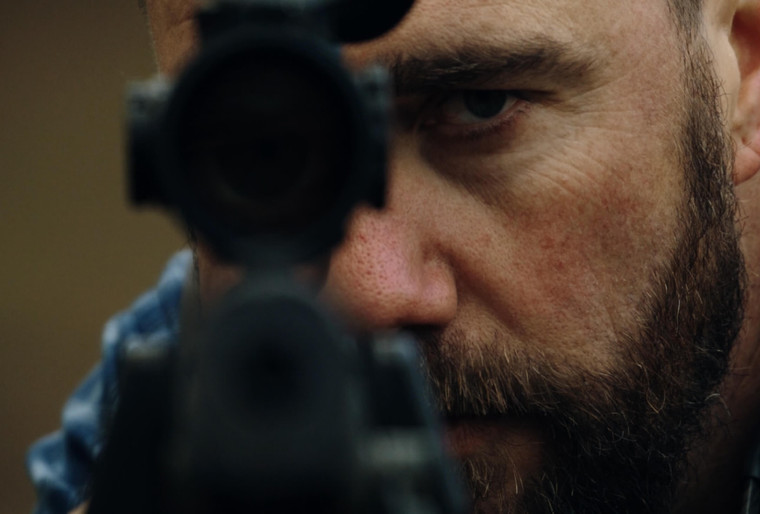Long Range Shooting with Ryan Cleckner
Posted by Warrior Poet Society on Aug 12th 2022
Former U.S. Army Special Operations Sniper Ryan Cleckner, now a lawyer and the founder of Gun University, brings simplicity to the craft and art of long-range precision shooting. Ryan is the author of the Long Range Shooting Handbook. He attended the prestigious SOTIC sniper school and served on two combat deployments. For several days at the Quinlan Ranch near Chama, New Mexico, Ryan walked us through what it takes to become a skilled long-range shooter with a precision rifle. We also watched him hit a target from more than a mile away. To watch Ryan Cleckner's Long Range Shooting Class, subscribe to the Warrior Poet Society Network.
Ryan Cleckner walks the monstrous hills of the Quenlin Ranch of southern New Mexico, quietly taking in the details of the morning of this 17,000-acre hunting ground situated amid one of the largest areas of elk migration in the world. Here he teaches days-long courses that serve to reassemble his students–dismantling wrong thinking and habits and rebuilding them into craftsmen set on the path toward consistency and mastery in the art of long-range shooting.

Shooter vs Sniper
Ryan surprised us when describing the life of a Special Operations sniper whose mission might have, at times, consisted more of shooting long-range photography or sending coordinates while observing a piece of mountainside from the same position for several days.
The way that Ryan approaches his tools and his craft might be akin to a solo cellist about to play a complex piece of music. Each link and hinge that connects his mind, his weapon, and his target are finely calibrated down to the breath he takes in sync with the pressure on the trigger.
"Learning how to shoot a precision rifle on range is not just about learning how to shoot targets really far away," Ryan said. "It's about getting more confident with any rifle that you have. Being a sniper is one of the most over-romanticized jobs in the military. It's cool, but when everyone else is getting ready to get on a helicopter to go on a raid, I'd hear 'Hey snipers. We're going to hit this village on Friday so why don't you guys go out on Wednesday and lay on the ground and watch it for three days.' Twenty-four hours into that you realize this may not be the coolest job."
"People think of snipers as the ultimate shooters. I admit that there are better shooters than me. But the most important things I learned and, now, teach are proper application of the fundamentals. Being able to do that in all sorts of settings with all sorts of rifles is what makes a successful long-range shooter."
Long-Range Fundamental #1: Start from Scratch
Ryan emphasizes the importance of having the right equipment properly adjusted to your body and the situation. Picking up another guy's rifle without customizing it for yourself will lead to hours of setbacks and frustrations.
"What you want is repeatability. What you really need, to get started, is an ok rifle, an ok scope, a bipod, and some good training," he said. "The most important part of your equipment is their ability to be reliably adjusted to give you consistent performance each time on the range."
PRO TIP If you're trying to decide on where to spend your money, spend it on the scope first. You can upgrade rifles later.
"And when you first set up your scope and rifle, start from scratch," Ryan said. "Almost every single rifle of every student I've ever had has their rifle set up wrong. I will spend the first day of a sniper course having everyone set up their rifles.

This means, don't just allow the gun shop or someone else mount your scope or make adjustments for you. Only you can set up your gun (with some guidance from people like Ryan) the way it needs to be.
Comfort is a key factor for knowing when it's set up properly and it's key in being a consistent long range shooter. You'll be spending a lot of time looking through your scope and you don't want to have to move your neck, head, or anything while on the range. All that should move while in position or your fingers to adjust the dials, your finger that pulls the trigger, the bolt, and the pencil writing in your DOPE journal.
"If this is set up wrong, you're going to spend years, and who knows how much money, until you get it right," Ryan says. "Only when you're in position and comfortable and can see clearly through the scope, you're not set up properly. If you can't just open your eyes and see clearly through the scope without moving your head, you need to make adjustments."
So, start from scratch, get everything set to your liking, and if you don't know what that means, get some good training from a guy like Ryan who can walk you through it.
Long-Range Fundamental #2: Practice and Master the Fundamentals
Ryan says a lot of shooters will geek out with software and calculations when they should be focusing on making scope adjustments in real time while shooting. This isn't competition shooting. This is real-world long range shooting that's often applied with moving targets on a hunting trip, etc.
PRO TIP You need to shoot a precision long range rifle to get good at shooting a precision long range rifle.
"Don't get caught up in the minutiae. Get out there and shoot," he says. "Sometimes it's just good enough accuracy. I'm a precision shooting guy who doesn't worry about too much precision. Don't get so stressed out about that stuff that you never get started."
Stable platform. This goes back to set up your rifle correctly so that you aren't moving in position. But it also means to keep your rifle level and not tilted to one side. It means using a bipod and backpack.
Trigger control. Apply consistent pressure on the trigger. Slow and steady takes the target, and doing this properly each time is what will lead to becoming a good shooter.
Good scope discipline. With your scope set up correctly and your ocular focus adjusted to your eyes, your only job is to focus on the reticle aligned with the target. And don't forget to replace the caps when you're done shooting.
Get the good DOPE. Your DOPE notebook should go with you any time you're on the range. Data On Previous Engagements (DOPE) is the way you know how your rifle performs in different conditions. This is more important than any sophisticated software you can buy.

Long-Range Fundamental #3: Get Good Training
If you've watched our Long Range Shooting series on YouTube and the Long Range Shooting Class with Ryan Cleckner on the Warrior Poet Society Network, that's a good start. Next you need to get your gear, get to the range and shoot some, and work with a skilled teacher who can continue growing you in the fundamentals of this shooting art.
Fine tuning your process in the fundamentals and turning those into automatic habits on the range are what will progressively make you into a successful long range shooter. Doing this without a skilled instructor will end up costing you a lot more time.
Train Hard. Train Smart. Master the Fundamentals of this Awesome Art.

